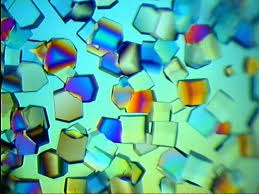Protein nucleation and crystal growth is a process of significant current interest to scientists and engineers. There are at least two principle motivations for the study of protein nucleation and crystal growth:
INVESTIGATIONS OF PROTEIN STRUCTURE
Details of protein structure are often determined via X-ray diffraction experiments on protein crystals. For these experiments to be successful these crystals need to be of highest quality.
STUDY OF UNWANTED PROTEIN NUCLEATION
Additionally, unwanted protein nucleation and aggregation is thought to be involved in a number of diseases, including Alzheimer's, sickle cell anemia and diabetes.
To understand more about what causes unwanted protein aggregation, and which factors generate protein crystals of highest quality, conditions in the growth process need to be investigated further. These include influence of salt concentration, pH, temperature, protein concentration, gravity, vibrations, seeding and radiation. The Alderman Barlow Lab group is currently investigating the protein crystal growth phenomenon.

Protein crystals of about 0.4 mm in size.
D.A. Barlow, J. Gregus, "Kinetics of Homogeneous and Two-Step Nucleation During Protein Crystal Growth from Solution", International Journal of Chemical Kinetics, 51, 840, 2019.
D.A. Barlow, J. Gregus, "Size Evolution and Composition of the Intermediate Phase During Nonclassical Protein Crystal Growth from Solution" Crystal Growth & Design, 2020.